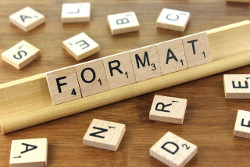Convert between float and string
yourbasic.org/golang
3.141592653589793238462643383279
5028841971693993751058209749445923
07816406286208998628034825342117067
9821 48086 5132
823 06647 09384
46 09550 58223
17 25359 4081
2848 1117
4502 8410
2701 9385
21105 55964
46229 48954
9303 81964
4288 10975
66593 34461
284756 48233
78678 31652 71
2019091 456485 66
9234603 48610454326648
2133936 0726024914127
3724587 00660631558
817488 152092096
String to float
Use the strconv.ParseFloat function to parse a string
as a floating-point number with the precision specified by bitSize:
32 for float32, or 64 for float64.
func ParseFloat(s string, bitSize int) (float64, error)When bitSize is 32, the result still has type float64,
but it will be convertible to float32 without changing its value.
f := "3.14159265"
if s, err := strconv.ParseFloat(f, 32); err == nil {
fmt.Println(s) // 3.1415927410125732
}
if s, err := strconv.ParseFloat(f, 64); err == nil {
fmt.Println(s) // 3.14159265
}
Float to string
Use the fmt.Sprintf method to format a floating-point number as a string.
s := fmt.Sprintf("%f", 123.456) // s == "123.456000"| Formatting | Description | Verb |
|---|---|---|
| 1.234560e+02 | Scientific notation | %e |
| 123.456000 | Decimal point, no exponent | %f |
| 123.46 | Default width, precision 2 | %.2f |
| ␣␣123.46 | Width 8, precision 2 | %8.2f |
| 123.456 | Exponent as needed, necessary digits only | %g |
